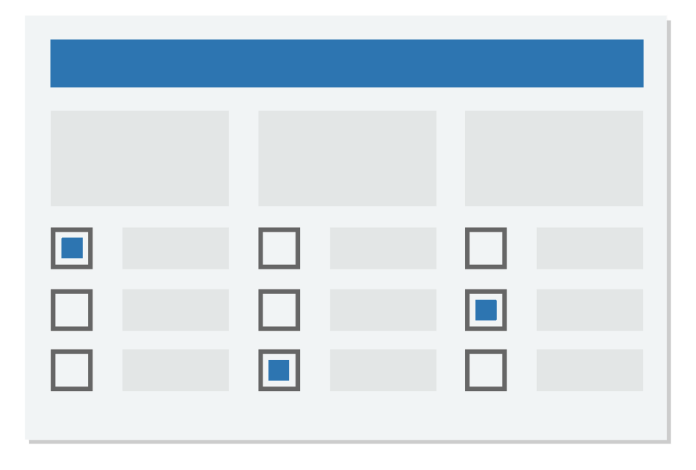
Cellular Internet Options
Find a cellular plan that works for you.
(If you haven't yet, Start Here first.)

Find a cellular plan that works for you.
(If you haven't yet, Start Here first.)
Approved by the carriers to be used in cellular routers for cellular internet usage.
Not approved by carriers to be used in cellular routers for cellular internet usage & usually requires workarounds.
Direct Carrier plan types are plans that you can get directly from one of the Big 3 carriers (AT&T, Verizon, T-Mobile). Direct Carrier plans are usually "better" in the sense that you have no extra restrictions on the plans that carriers typically place on the 3rd party carriers and you have direct control of your account with a Big 3 carrier. Here's the types of plans they offer:
Internet Plans
> Pros - Official "Legit" plans from the carrier to provide cellular internet to your home. Therefore no workarounds needed, TOS problems, or legal grey area issues. Additionally, they usually come with the cellular equipment needed (so no need to do your own work in Step 3). These types of plans are ideal for legitimacy, ease of use, simplicity of setup, and official tech support.
> Cons - Recently, carriers have been improving these options to lessen the amount of cons. However, the main issue is that these plans have limited availability based on location. Also, sometimes these plans are limited in data usage and subject to network management policies (like throttling, deprioritization, etc). Additionally, the official cellular equipment that comes with the plans can be limited and many times are geo-locked to the registered address.
Hotspot Plans
> Pros - These are also official "Legit" plans from the carrier to provide cellular data. So, again, no workarounds needed, TOS problems, or legal grey area issues. Usually you can put the SIM in any hotspot device/cellular router. Carriers will provide customer support on using the data of these plans for cellular internet.
> Cons - Usually limited data and more expensive. Once the data amount is used up, there is no way around it. However, more recently, carriers have begun to offer higher data hotspot plans for more reasonable prices.
Tablet Plans
> Pros - Usually great pricing for unlimited data. Work very well for a lot of people. Very popular option.
> Cons - Pricing is dependent on having phone lines with Verizon & T-Mobile (no phone lines, means the price is much higher), but AT&T allows you to get the plan without phone lines (so stays cheap). Tablet plans sometimes are lower priority, so it may affect your speeds, depending on your specific cellular tower. Also, tablet plans are "Untraditional plans" - so they require the workarounds and it is against the TOS.
Phone Plans
> Pros - Usually highest priority data plans, so usually the highest performance plans to use. Can just simply add a line to your existing phone group, so simple to get. Price all depends on how many phone lines you have in your group. If you have enough phone lines, you could end up getting a great deal on unlimited data.
> Cons - Phone plans can be pricey if you only have 1 line or not many in your phone group. Also, these plans are "Untraditional plans" - so they require the workarounds and it is against the TOS.
A MVNO is a "Mobile Virtual Network Operator" - which means that they do not own the actual network infrastructure and they usually purchase/lease network usage from one of the Big 3 carriers (AT&T, Verizon, T-Mobile). Some example MVNOs are StraightTalk, Mint Mobile, Boost, Visible, Cricket, Metro, Google Fi, etc. Depending on the MVNO, they may offer phone, tablet, and/or hotspot plans. In general, here are the pros and cons of MVNOs:
> Pros - Sometimes can be relatively cheap for certain amounts of data. Usually prepaid, which is helpful for some people. Sometimes easier to get the plans setup.
> Cons - Usually lowest in priority and some can have higher latency. Many have some sort of data cap or throttle involved. Sometimes not worth it compared to direct carrier plans.
Resellers are different from MVNOs in that they don't actually operate a virtual network. In general, they just buy normal plans from carriers and resell them with a high markup. If that sounds fishy to you, it's because it usually is. We actually recommend avoiding resellers, if at all possible. Resellers make claims all the time. Just because a reseller claims that they have no throttles or that they are selling legit hotspot plans, it doesn’t mean that their claims are true. The main reasons we don’t recommend resellers is because:
1. Most resellers are just selling what a customer can get directly from the carrier (phone, tablet, hotspot, and similar plans).
2. 90% of resellers are scams at worst, or using questionable business practices at best. 5% of them aren’t worth it. 5% of them are only useful in very specific situations.
Of course, everyone is free to make their own personal choices when it comes to the cellular plan that they are using. We just hope that they can make at least an informed choice. We are sharing this to spread awareness because we’ve just seen way too many people burned by resellers. They constantly overpromise and underdeliver.
MORE DETAILS
To view popular cellular plans that can be useful for cellular internet, explore the plan list.
Please Note: It would be best to understand the cellular plan categories and types by viewing the information above prior to exploring the plan list.